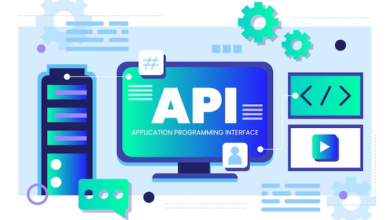
The Future of Surgery: How AI Assistants Guide Surgeons
In the ever-changing environment of contemporary health care, the incorporation of leading-edge technology has resulted in the birth of inventions. Those multitude inventions have transformed medicinal measures all over the board. Amongst these ground-breaking innovations, the intersection of Artificial Intelligence (AI) and surgery has appeared as a revolutionary force. It have present possibilities that never been seen before to improve patient attention, clinical accuracy, and complete healthcare results.
Several areas have created major contributions to the expansion of AI throughout history. It is a large and diverse subject that is drawn from a huge diversity of fields. There have been several disciplines that have contributed significantly to the development of AI. Those includes biology, philosophy, and computer science, amongst others. These disciplines have often worked in parallel with one another. Until eventually crossing at different periods in time as technology and interests have converged.
Acquiring Knowledge about Conversational AI in Surgery
There is a reason to be positive about Conversational AI Services in surgery since technology and doctors might collaborate. This will enhance the capabilities of the human mind. The combination of Conversational AI with robotic technology has some potential. That will provide a significant opportunity for progression in the place of surgery. The area of operation is not an exception to the fast transformation that AI is bringing in the health industry.
Virtual robotic assistants that move around by natural language commands or mechanical visual interpretations of surgical scenes are one example of the opportunities that lie ahead. Other examples include virtual instructors who can make remote physical modifications in the functioning area. Those are accessible on demand, as well as self-sufficient robotic executes of surgical assignments or entire procedures. In the area of surgery, it anticipate that the beginning of AI will bring about tremendous improvements. It may also brings dramatic transformations.
Benefits of Conversational AI in the Healthcare Industry
Virtual assistants and mentors, enhance awareness of situations, and an interface to a communal surgical understanding are some of the potential uses of Conversational AI Services that might be develop in the future. Since the computing mechanisms of a robotic system could not be especially clever; it is important to note that not all robotic technologies are Artificial Intelligence systems.
- Image Analysis and Computer Vision at the time of surgery is also important. AI algorithms will increase image analysis skills. This will assist in the interpretation of health imaging like X-rays, CT examinations, and MRIs. The use of computer vision methods in conjunction with AI will make it possible to automatically detect anomalies. It also helps to take exact measurements, and examine essential anatomical structures.
- During the surgical procedure, Artificial Intelligence systems will continually monitor the significant symbols. Also, monitors physiological parameters, and censoring data of the patient. Surgical professionals will get notifications in real-time, which will make it easier for them to recognize issues early on. It will help to take preventative measures, and give individualized treatment to patients.
- Virtual Reality and Augmented Reality, which are driven by AI, will generate interactive and realistic surgical simulations. This will improve surgical education and training. Surgeons will have the chance to practice operations, improve their abilities, and interact remotely via the use of virtual environments.
- Artificial Intelligence will contribute to individualized treatment regimens by evaluating huge volumes of patient data, inheritance, and medical literature. This will be accomplish using statistical analysis and precision medicine technology. The ability to anticipate specific patient reactions to treatments, optimize therapy, and enable precision medicine methods in surgical procedures will all be facilitate by this technology.
- AI systems will continue to gain knowledge from a wide variety of sources. This includes electronic medical records, investigations, plus real-time data. They will also continue to exploit large-scale data integration. Enhancing clinical decision-making, facilitating evidence-based practice, and contributing to current research initiatives are all outcomes.
- As the use of AI in surgical procedures becomes more widespread, there will be an increased emphasis placed on ethical issues, transparency, and accountability. Several initiatives will be undertaken to combat prejudice and protect the privacy of patients. It will help to develop regulatory frameworks, and encourage the proper use of AI technology in surgical settings.
- While it is true that future of AI in surgery has a great deal, it is also crucial to highlight that. To be successfully integrate and adopted, there will need to be cooperation between surgeons, AI specialists, regulatory agencies, and stakeholders. To ensure that patients get the best possible results, confirmation, security, education, and moral standards must receive close attention.
- The process of training Artificial Intelligence models requires a substantial quantity of labeled data. This is especially true for machine learning and neural networks, which are utilize to understand patterns and generate accurate predictions. The method of categorizing medical pictures, notes from doctors, and other types of healthcare data. It enable the models to be train successfully and referred to as data annotating.
Enhanced Surgical: The Field of Robotics
AI-driven robotic systems will continue to advance, resulting in the development of instruments. The instruments are more accurate, dexterous, and user-friendly for surgeons. Surgical results will be improve and invasiveness will be reduce. The variety of treatments will expand thanks to the collaboration between these robots and human surgeons.
Artificial Intelligence will play a significant part in the process of surgical planning by combining patient data, image knowledge, and best algorithms. This will allow for intelligent surgical preparation and guidance. In the course of surgical operations, surgeons will have access to real-time advice, which will improve accuracy and reduce the likelihood of problems. Artificial Intelligence will be of assistance in making decisions, forecasting results, and optimizing surgical operations.
Bottom-Line
Vision awareness, decision-making, voice recognition, and translating across languages are all examples of jobs that may be performed by automated systems that are capable of doing tasks that would ordinarily need human intellect. Conversational Artificial Intelligence is a wide term that encompasses all of these capabilities.
For More Articles Click: WINTERTALESEVENTS




